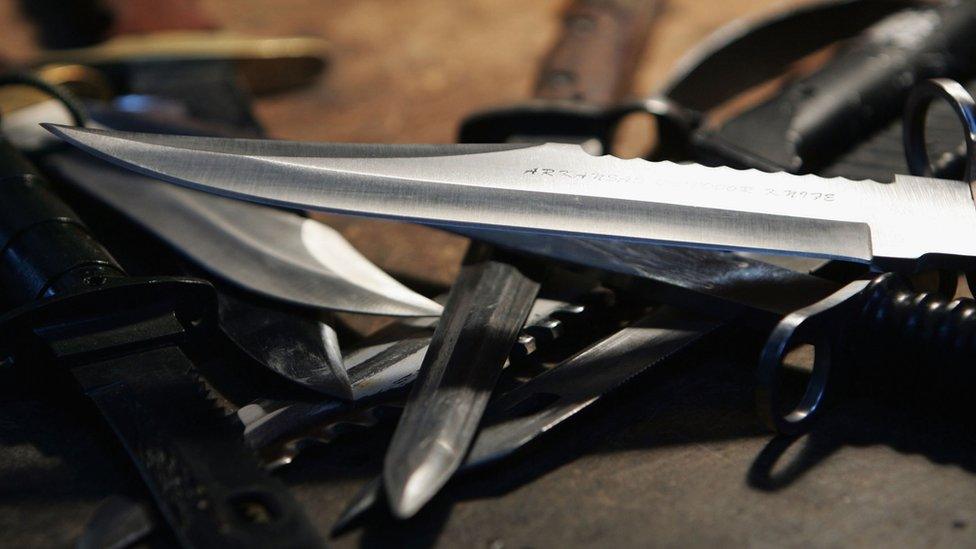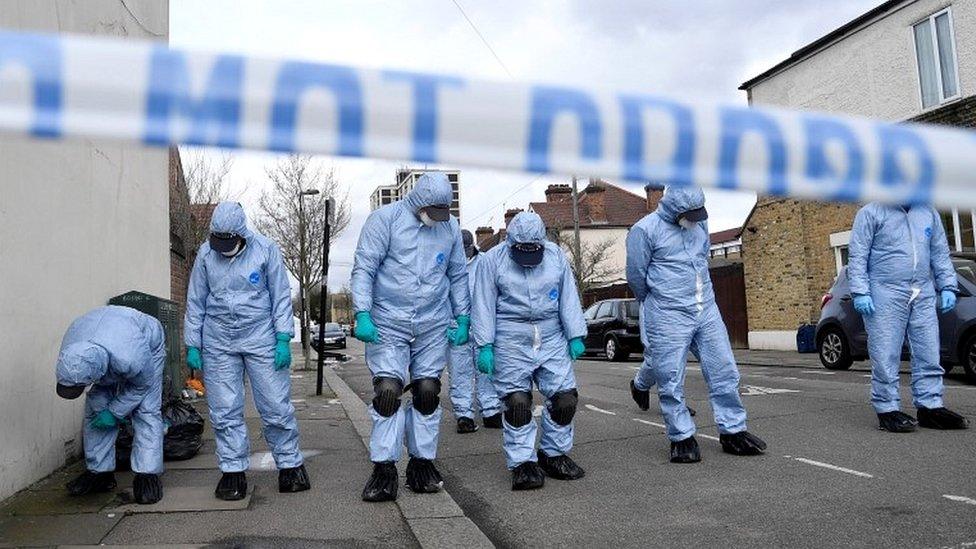Knife Crime Prevention Orders to be trialled in London
- Published

Knife Crime Protection Orders target anyone aged 12 or over suspected of knife crime involvement
New powers imposing restrictions on people thought to be carrying knives are to be trialled in London.
Knife Crime Prevention Orders would impose sanctions such as bans on using social media and bans on visiting certain areas or meeting individuals.
Orders would target anyone in England and Wales aged 12 or over suspected of being involved in knife crime.
The trial - which has been criticised for potentially criminalising 12-year-olds - will take place over 14 months.
It is due to start from 6 April.
The Home Office said the orders were intended to be "preventative rather than punitive" in a bid to encourage people to change their behaviour and avoid being drawn into knife crime.
Commander Jane Connors, from the Met Police, said the orders would be a "valuable tactic in preventing violence on the streets of London".

However, critics said the orders risked criminalising young people.
A court can use the orders to impose sanctions on suspects, even if they are not caught with a blade.
Breaching an order would be a criminal offence punishable with up to two years in prison.
'Turn lives around'
Patrick Green, CEO of knife crime prevention charity the Ben Kinsella Trust, said his organisation felt "uneasy" about the new measures.
"We support all approaches that aim to lead to a reduction in knife crime, but we are concerned that young people as young as 12 may well be criminalised for breaching these orders," he said.
"We want to make sure there are sufficient safeguards in place to make sure young people have sufficient access to support steering them away from knife crime much earlier.
"Early intervention can help young people turn their lives around and should always be the first option."
Labour MP Sarah Jones, chair of the all-party Parliamentary group on knife crime and violence reduction, said the orders were "not the solution we desperately need".
"These orders risk criminalising a generation of young people who have grown up with vital support cut to the bone by the current government," she said.
"There is no evidence that they will do anything to help young people move away from violence - they need care and support rather than punitive action."
- Published31 January 2019

- Published23 January 2019
- Published15 December 2018

- Published12 December 2018
